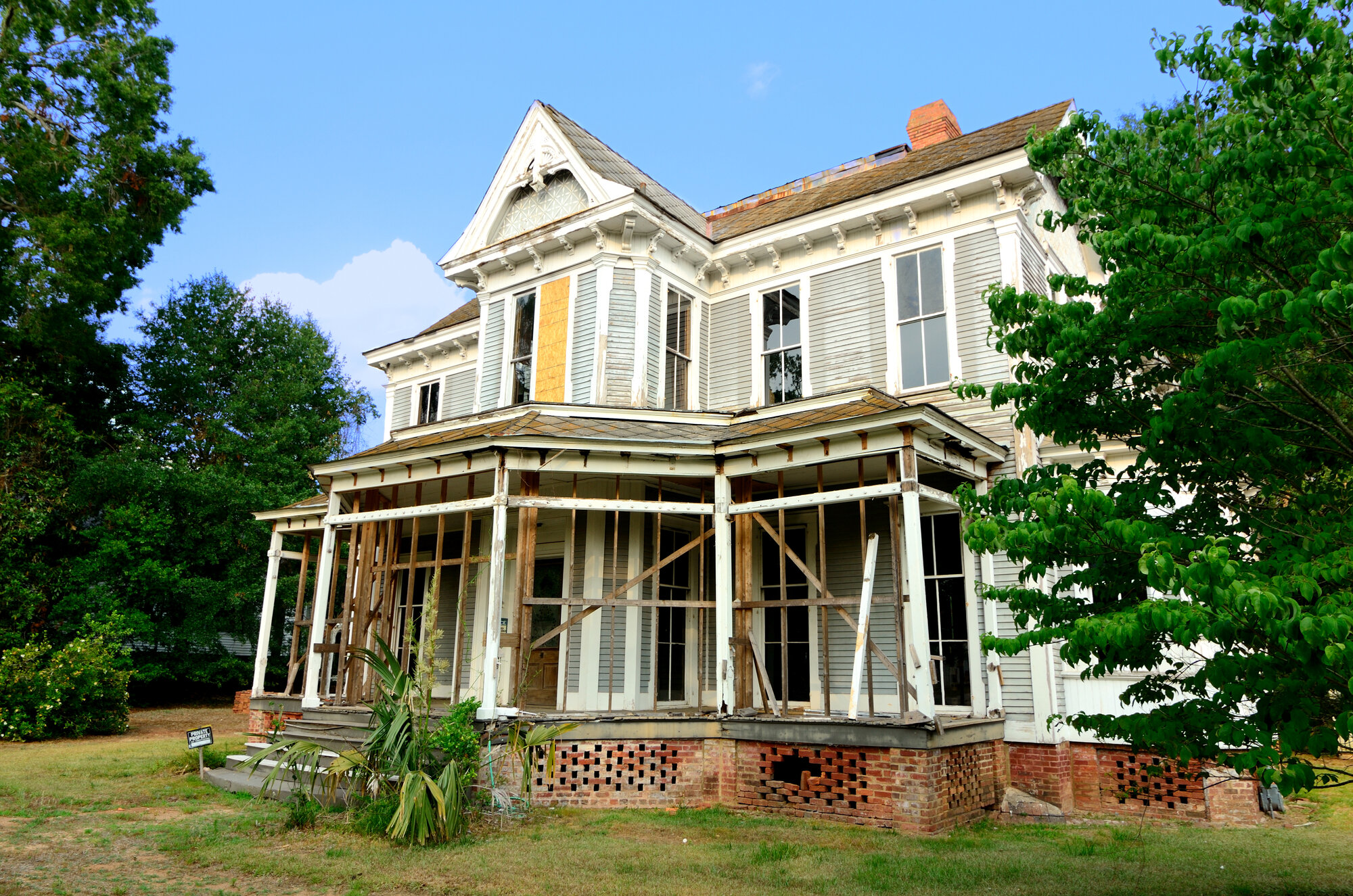Inheriting a property can be a challenging experience both emotionally and financially. Are costly upgrades and repairs necessary for the property? How much will you be required to pay in taxes? Is there a will in place, or will you need to navigate the probate process? Despite the obstacles, inherited properties present a valuable opportunity for real estate investors and buyers seeking discounted properties with potential. Selling an inherited property as a homeowner involves unique considerations. This guide will walk you through the steps required to sell an inherited property successfully, potentially leading to a profitable transaction.
How To Sell An Inherited Property in
So you find yourself in the situation of inheriting a property and are unsure about the next steps. Typically, in most states, inherited properties need to go through a probate process to establish the legal owner. Probate is a necessary legal procedure where the Court facilitates the transfer of the estate’s assets to designated beneficiaries or heirs. The pace of this process can vary significantly based on the presence and clarity of a will.

Determine the Executor
When dealing with inherited properties with a will, determining the executor of the estate is typically a straightforward process. An essential aspect of a will is designating an executor capable of executing the deceased individual’s desires through the probate process. Assets outlined in a will remain unsellable until the will is authenticated by the Court. Once validated, the appointed executor is empowered to carry out the wishes of the deceased. However, if the will faces challenges or is non-existent, the involvement of the Court may prolong the process.
In cases where the will is contested or absent, the probate court will designate an impartial administrator to oversee the estate. These administrators perform duties akin to an executor, ensuring the fulfillment of the deceased’s wishes as documented in the will, settling any outstanding debts of the estate, and distributing assets accordingly. Additionally, they may assess whether any real estate assets must be liquidated to settle the estate’s liabilities, such as unpaid taxes or mortgages.

Working with Lawyers and Real Estate Agents
Probate can be a complex process, underscoring the importance of engaging an experienced lawyer to steer you through the potential challenges of selling an inherited home. Once you secure the probate court’s approval to proceed with the property sale, the next prudent move is to collaborate with a real estate agent versed in handling inherited homes. A seasoned agent with probate expertise will grasp the intricacies and guidelines pertinent to this type of transaction. They can assist you in identifying the right buyer to maximize returns on the inherited property. Additionally, they can offer valuable insights on which repairs and upgrades are worth investing in and which are not. Following their recommendations could be the deciding factor between a swift, profitable sale and being burdened with a property that languishes on the market and sells below its actual value.

Resolve Any Debts
Have you ever imagined inheriting a million-dollar mansion nestled in the woods from a mysterious great-aunt at the mention of the word “inheritance”? The reality, however, may involve grappling with property entangled in liens, back taxes, and a mortgage that could hinder potential profits upon sale. Coping with the passing of a loved one often entails confronting their debts, be it in the form of taxes, mortgages, or accrued credit card balances. Prior to accessing any inheritance, it is mandatory to settle these outstanding debts using the inherited assets. While a house may appear as a valuable asset, it could easily transform into a financial burden. Seeking guidance from a seasoned estate advisor is crucial for exploring various solutions in estate management.

Clean & Restore the Home
Once ownership has been decided and the property is considered yours, your next step will be to decide whether you want to live in it, rent it out, or sell it. Many times, when a loved one passes they leave behind a house that is not in the best of shape. Whether the property hasn’t been kept up in the past decade and needs major cleaning and repair, or there were never any upgrades done and the house will need to be completely renovated to make it “market ready”, this is the part of an inheritance that is often forgotten about.
Contact Us today for your cash offer!
Contact us today and get a competitive cash offer for an inherited house, condo, or property. We buy homes in any condition, and we can also help with the convoluted process of selling a house in probate!
Do all heirs have to agree to sell the property?
No, the heirs don’t necessarily have to agree to sell an inherited property if ownership has been established through a will or by the probate court. However, in cases where ownership has not been clearly established, such as in estates without a will or with a Court-appointed administrator, the consent of all heirs is required for the sale to proceed. This requirement extends to properties auctioned off by the Court to settle the estate’s debts. Should a buyer acquire a property at auction and encounter disagreement from one or more heirs, the sale may be halted until a resolution is reached.
How to Settle a Disagreement
Resolving disagreements among heirs over an estate involves various options, starting with ensuring the appointment of an executor to oversee the deceased’s wishes as outlined in the will. Designating an executor can help avoid disputes regarding asset distribution. In cases where there is no appointed executor and the will is under dispute, engaging a mediator could be the next step. Employing a neutral third party to facilitate discussions can be a cost-effective alternative to engaging in a legal battle in probate court.
Best Practices
When disputes arise concerning the executor’s role, particularly if a family member holds the position, tension among family members can escalate. In such situations, the appointed individual has the option to decline the role, selecting an impartial fiduciary like an estate-planning attorney to manage the will instead. Stepping aside in favor of a neutral party not only helps prevent conflicts but also allows everyone involved the necessary time and space to navigate complex emotions before they strain family relationships irreparably.
How is inherited property taxed when sold?
Did you know that state and local governments in the United States collected over $5.3 billion in revenue from estate and inheritance taxes in 2020? That’s a significant amount! With laws and regulations varying from state to state, it is crucial to conduct thorough research and seek advice from a knowledgeable lawyer specializing in taxes and estate planning, especially when dealing with a surprise inheritance or drafting your will.
State Tax Laws
It is crucial to understand that each state has unique laws regarding inheritances. When selling an inherited property, there may be implications such as estate tax, inheritance tax, or capital gains tax depending on the state’s regulations. Presently, twelve states enforce an estate tax, five implement an inheritance tax, and one imposes both an estate and inheritance tax.

Understanding Capital Gains Tax on Inherited Property
Curious about capital gains tax requirements for inherited properties? Capital gains tax is applied to the appreciated value of assets inherited through an estate. It becomes due only upon the profitable sale of the asset, not upon inheritance. This tax is calculated based on the difference between the selling price and the initial purchase price of the property. While most states mandate this tax on inherited properties, there are exceptions for sales below a specific threshold. For instance, in Washington State, no capital gains tax is imposed on properties sold for less than $250,000. Various legal strategies, such as reinvesting in another property, may help mitigate or avoid this tax liability. To navigate the complexities of capital gains tax in your state, seek guidance from a tax attorney well-versed in local regulations before selling your property.

Estate Taxes
An estate tax is a tax paid directly out of the estate to the state before anyone is able to inherit it. Concerned about the possibility of a substantial deduction from the estate? Fear not! The estate tax features a minimum threshold, which stood at $12.92 million for individuals in 2023. This implies that you won’t be subject to an estate tax unless the total taxable estate surpasses $12,920,001. Any amount below this threshold can be transferred free from estate tax. Despite the generous threshold, several states choose to repeal their estate tax laws annually, leading to a loss of significant revenue.

Inheritance Taxes
Did you know that only six states impose an inheritance tax? If you reside in Maryland, Nebraska, Kentucky, New Jersey, Pennsylvania, or Iowa, as a beneficiary or heir, you may be liable to pay taxes on inherited assets and properties. Fear not! If the deceased lived in one of the 44 states without this tax, you might not have to pay a cent. Fortunately, most individuals are not affected by inheritance tax, but it’s essential to understand the implications based on your location.
Documents required to sell an inherited property
When selling an inherited property, it is essential to have the necessary documentation to establish legal ownership and facilitate the sale process. You will need a copy of the court-issued documents granting you the authority to act as the executor or administrator of the estate. These documents are crucial for demonstrating your ability to manage the inherited property effectively. Additionally, when preparing to close the sale, you must have the deed, title insurance, and other pertinent legal records to verify your ownership rights to the inherited property.
Be sure to conduct thorough research to determine any additional documents required for selling an inherited property in your specific jurisdiction. Some areas may mandate property-related documents such as past surveys, inspections, or any other records concerning the property’s condition or history.
Is there an easier way to sell?
Indeed, there is a simpler alternative! At Titanium Realty Group, LLC. (DBA Family Guy Buys Houses), we specialize in direct house purchases, particularly of inherited properties, offering a hassle-free and cost-effective solution. Contact us today to receive a competitive cash offer for your inherited house, condo, or property. We buy houses in any condition and can guide you through the complex probate property selling process. Let us streamline your home selling journey for a stress-free transition to the next chapter of your life.
Regardless of whether the property has endured significant damage from a recent storm or requires extensive renovations due to years of neglect, once you accept our equitable cash offer, our team of professionals will manage all the necessary repairs at no extra cost to you. Selling an inherited house has never been easier with our dedicated support.
Why Selling an Inherited House to a Cash Buyer Investor Makes More Sense Than You Think
Inheriting a house can be a mixed blessing. On one hand, it’s a valuable asset that may carry deep sentimental value. On the other, it often brings with it a host of logistical, legal, and financial responsibilities you didn’t ask for—and may not be prepared to manage.
Suddenly, you’re faced with decisions about probate, property maintenance, taxes, and whether to keep, rent, or sell a home that’s now in your name. If you’re not prepared to take on the costs and commitments that come with ownership, selling may be the smartest option.
And if you’re considering selling, a cash buyer investor may be the most efficient and stress-free way to go. Here’s why.
1. Avoid the Hassle of Repairs and Renovations
Let’s face it: most inherited homes are not turnkey-ready. They may have been lovingly maintained but are likely outdated, and in some cases, they’ve sat vacant for months or even years.
Selling the home the traditional way often means:
- Repairing structural or cosmetic issues
- Updating kitchens and bathrooms
- Hiring contractors and inspectors
- Dealing with city codes or permits
That’s a time-consuming and expensive process. Cash buyer investors, however, buy homes as-is. They aren’t expecting granite countertops or a freshly painted exterior. They’re experienced in taking on homes that need work, saving you from having to pour money into a property you weren’t expecting to own in the first place.
2. Faster Sale—Settle the Estate and Move On
Probate and inheritance are emotionally draining. By the time you’re legally able to sell the property, chances are you just want to wrap things up and move forward.
Traditional home sales can take 30–90 days or more, with all the moving pieces: realtors, showings, buyer financing, appraisals, and negotiations. In contrast, cash buyers can often close in as little as 7 to 14 days, sometimes even faster.
That means fewer months worrying about insurance, utilities, property taxes, or vandalism if the home is vacant. The faster you sell, the faster you settle the estate—and gain peace of mind.
3. Skip the Cleaning, Showings, and Staging
Inherited homes often come filled with personal belongings, furniture, and even decades of storage. The idea of cleaning it all out just to prepare for showings can be overwhelming—especially when you’re already grieving a loved one.
Cash buyers typically don’t require you to clean or clear out the home. In many cases, you can take what you want and leave the rest. There are no open houses or last-minute showing requests. Just one or two visits from the investor, and the rest is handled behind the scenes.
This is an enormous relief for heirs who live out of state or are managing the estate while juggling work and family obligations.
4. No Realtor Commissions or Fees
In a traditional sale, the cost of real estate agent commissions (usually around 5-6%) comes off the top of your profit. When selling to a cash buyer, you avoid agent commissions entirely. Most investors cover all closing costs and fees themselves, which puts more money in your pocket.
This is especially important if you’re splitting proceeds among multiple heirs—every dollar saved makes a difference.
5. Reduce Family Conflicts and Complications
Inherited property can sometimes cause tension among family members. Siblings or other heirs may have different opinions on what to do with the house—one might want to keep it, another wants to rent it, and another wants to sell.
A clean, fast, cash sale can minimize disagreements and simplify the division of assets. There’s no drawn-out process to argue over, and the proceeds can be divided quickly and fairly.
Plus, cash buyers often provide flexible arrangements if you need time to coordinate with all heirs or finalize the estate.
6. Avoid Probate Pitfalls and Legal Delays
If the home hasn’t yet cleared probate, some investors are willing to work with your attorney or probate representative to structure the sale properly and even close once the legal process is complete. They can offer guidance, referrals, or even pay for some of the legal services needed to facilitate the transaction.
In short, a good investor can be a partner, not just a buyer, when it comes to navigating the complexity of selling an inherited home.
7. Immediate Access to Liquid Funds
In many cases, the house is the most valuable asset in the estate. Whether you need to pay off debts, cover funeral expenses, or distribute inheritances to other beneficiaries, selling quickly to a cash buyer gives you immediate access to funds.
There’s no waiting on bank loans or buyer financing. Cash buyers provide certified funds at closing, which allows you to settle any financial responsibilities tied to the estate right away.
8. Less Risk of a Sale Falling Through
Traditional buyers can back out of a deal at any stage—due to financing, inspection results, or simply cold feet. This can drag the process out even longer and cost you time and money.
Cash buyers are typically experienced professionals who are committed once they make an offer. There are fewer contingencies, no financing hurdles, and a much higher likelihood of the sale closing on schedule.
9. Privacy and Discretion
If the home is in disrepair or located in a declining neighborhood, you may not want to advertise it publicly. Listing a home on the MLS means photos, public open houses, and a lot of people coming in and out.
Selling to a cash buyer means no public exposure. It’s a private, off-market transaction that can be handled discreetly—especially useful if you’re trying to avoid the scrutiny or curiosity of neighbors.
Final Thoughts
Inheriting a home is rarely as simple as it sounds. Between the emotional ties, legal requirements, and physical upkeep, it can feel like a burden more than a blessing. Selling to a cash buyer investor offers a path that’s fast, fair, and far less stressful.
You can walk away without repairs, without showings, without waiting months—and with a check in hand to use however you see fit.
If you’ve recently inherited a property and want to explore your options, consider speaking with a reputable cash buyer in your area. It just might be the simplest way to turn the page and move forward with clarity and peace of mind.
Contact Us today for your cash offer!
If you own a property that’s stuck in probate that you are ready to sell, call us at (407) 216-5544 day or night to get a competitive cash offer for that inherited home. We buy properties in any condition and no matter what the estate’s financial situation might be.

